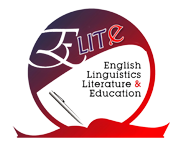Integrating Islamic Moderation Values in Teaching Speaking through Group Activity
 Abstract views: 629
,
Abstract views: 629
,
 PDF downloads: 569
PDF downloads: 569
Abstract
Downloads
References
Ali, F. (2018). Incorporating Values of Moderate Islam for the 21st Century Learners in an English as a Foreign Language Class. Edukasia Islamika, 3(1), 8–31. https://doi.org/10.28918/jei.v3i1.1676.
Badan Bahasa Depdiknas. (2014). Kamus Besar Bahasa Indonesia (4 ed.). Jakarta: Gramedia.
Bailey, K. M., & Savage, L. (1994). New Ways in Teaching Speaking. New Ways in TESOL Series: Innovative Classroom Techniques. Alexandria: TESOL.
Brown, H. D. (2007). Teaching by Principles: An Interactive Approach to Language Pedagogy (2 ed.). London: Longman.
Cambridge English Dictionary. (2020). Discussion. https://dictionary.cambridge.org/dictionary/english/discussion.
Collins English Dictionary. (2020). Tolerance Definition and Meaning. https://www.collinsdictionary.com/dictionary/english/tolerance.
Darajat, Z. (1989). Dasar-Dasar Agama Islam. Jakarta: Bulan Bintang.
Febrina, N., Mukhaiyar, & Zaim, M. (2013). The Study of Using Group Work Teaching Speaking Activity: A Case Study at Grade X MAN 1 Padang. Journal English Language Teaching (ELT), 1(1), 89–101.
H. Douglas Brown. (2007). Teaching by Principles, An Interactive Approach to Language Pedagogy (3rd Edition). San Francisco: San Francisco State University.
Harmer, J. (2015). The Practice of English Language Teaching. London: Pearson Education.
Huda, A. (2010). Epistemologi Gerakan Liberalis, Fundamentalis, dan Moderat Islam di Era Modern. Journal de Jure, 2(2), 178–194. https://doi.org/10.18860/j-fsh.v2i2.2977.
Irveanty, M. (2013). Integrasi Nilai-Nilai Karakter Islami dalam Pembelajaran Bahasa Inggris di SMAN Banjarbaru [Unpublished Thesis]. IAIN Antasari.
John, D. (2017). Employing Group Work to Foster Speaking Skills: A Study of Success and Failure in the Classroom. MEXTESOL Journal, 41(3), 1–9.
Kamal, R. (2017). Internalization of Moderate Islamic Values in Education. Islamic Studies Journal for Social Transformation, 1(1), 67–80. https://doi.org/10.28918/isjoust.v1i1.1142.
Liyanage, I., Bartlett, B., & Grimbeek, P. (2010). Religious Background and Language Learning: Practical Suggestions for Deriving Best Practice in ELT. The Asian EFL Journal, 46, 28–47.
Madkur, A., & Muharom Albantani, A. (2018). Instilling Islamic Values in Foreign Language Teaching: An Indonesian Context. Proceedings of the International Conference on Education in Muslim Society (ICEMS 2017). International Conference on Education in Muslim Society (ICEMS 2017), Banten, Indonesia. https://doi.org/10.2991/icems-17.2018.20.
Rohmat Mulyana. (2004). Mengartikulasikan Pendidikan Nilai. Bandung: Alfabeta.
Suara Nahdlatul Ulama | NU Online. (2019). Diambil 21 Oktober 2019, dari https://www.nu.or.id/.
Suharto, T. (2017). Indonesianisasi Islam: Penguatan Islam Moderat dalam Lembaga Pendidikan Islam di Indonesia. Al-Tahrir: Jurnal Pemikiran Islam, 17(1), 155-178–178. https://doi.org/10.21154/altahrir.v17i1.803.
Wahyudi, C. (2011). Tipologi Islam Moderat dan Puritan: Pemikiran Khaled M. Abou el-Fadl. Teosofi Jurnal Tasawuf dan Pemikiran Islam, 1(1), 75–92. https://doi.org/10.15642/teosofi.2011.1.1.75-92.
The journal uses an Open Access policy under a Creative Commons Attribution-NonCommercial 4.0 International License. Authors who publish with this journal agree to the following terms:
- Authors retain copyright and grant the journal right of first publication with the work simultaneously licensed under a Creative Commons Attribution License that allows others to share the work with an acknowledgment of the work's authorship and initial publication in this journal.
- Authors are able to enter into separate, additional contractual arrangements for the non-exclusive distribution of the journal's published version of the work (e.g., post it to an institutional repository or publish it in a book), with an acknowledgment of its initial publication in this journal.
- Authors are permitted and encouraged to post their work online (e.g., in institutional repositories or on their website) prior to and during the submission process, as it can lead to productive exchanges, as well as earlier and greater citation of published work.
















